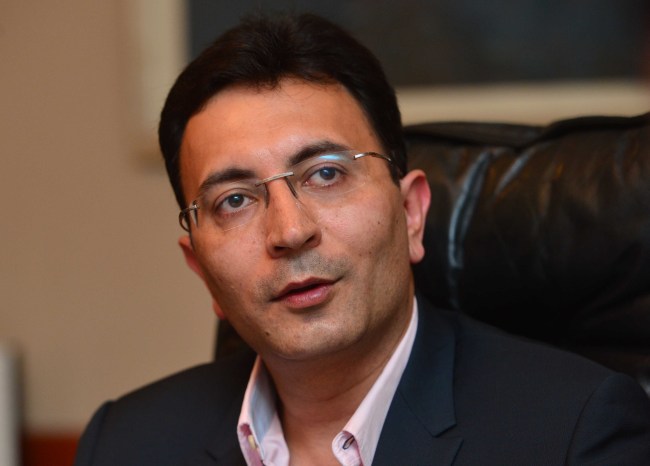A top Indian government official expressed hope that Korea and India would expand business cooperation, stressing that the two countries are the growth engines of the Asian economy.
“The 21st century is the Asian century. I am very happy that we are part of it and India and Korea will play an important role,” said Jitin Prasada, minister of state for human resources development in India, in an interview with The Korea Herald this week.
“I expect more cooperation between the two countries not only on the cultural front but also on the economic front.”
 |
Jitin Prasada, minister of state for human resources development in India. (Lee Sang-sub/The Korea Herald) |
With its advanced human resources and information technology, India hopes to become the world’s third-largest economic power and to increase its influence on the world stage by 2030.
India is the world’s second-most populous nation after China and the nation is also striving to narrow the gap between the rich and poor by drawing more foreign business investment to create more jobs.
The minister came to Seoul as head of a delegation of Indian publishers, authors and government officials due to participate in the Seoul International Book Fair from Wednesday through Sunday at COEX, an exhibition center in Gangnam, Seoul.
In order for India to achieve its goal of becoming a world economic power, nothing is more important than to interconnect and embrace people from different historical and cultural backgrounds, according to the minister.
“Books go to the heart of any civilization and any relationship. People can understand the lives of others in different regions through books,” said Minister Prasada. “That is why we are here in Korea. I hope young Korean generations come and get a feel of India.”
More than 2,500 titles from 23 participating Indian publishers are on display at the Seoul International Book Fair. In addition, another 800 titles are exhibited representing nearly 75 publishers. The pavilion includes displays on “Books on and by Mahatma Gandhi,” “Nobel Laureates from India” and “A Hundred Years of Cinema.”
A graphic novel for children titled “Sritana & Kim Suro: The Legend of an Indian Princess in Korea” by N. Parthasarathi, a novelist and former ambassador of India to Korea, was released at the inaugural program of the pavilion.
India publishes 100,000 books every year, 40 percent of which are in English. Those books are also translated into 22 local languages, which, the minister said, can be a boon for Korean translation businesses.
The book fair was organized to commemorate the 40th anniversary of the establishment of diplomatic ties between the two countries.
“Historically speaking, the relationship between the two nations goes back almost 2,000 years to A.D. 48, when an Indian princess named Sriratna (Queen Heo Hwang-ok) married King Kim Suro of the Gaya Kingdom of Korea,” said Minister Prasada. “Indian influence has been present in the Korean population, and the two nations have shared similar cultural heritage while they have had consistent engagements in various fields.”
In 1929, Rabindranath Tagore, a Nobel Prize laureate for literature, predicted the reemergence of Korea in his poem “The Lamp of the East.” In commemoration of the great Indian poet, a bust in his likeness was installed in Jongno, Seoul.
Praising the rise of Korea from the rubble of the 1950-53 Korean War, Minister Prasada said Korea was an exemplary model for other underdeveloped and developing nations.
“It makes sense and seems natural for the two nations to work together for (the) economy and learn from each other,” the minister said.
By Kim Young-won (
wone0102@heraldcorp.com)








